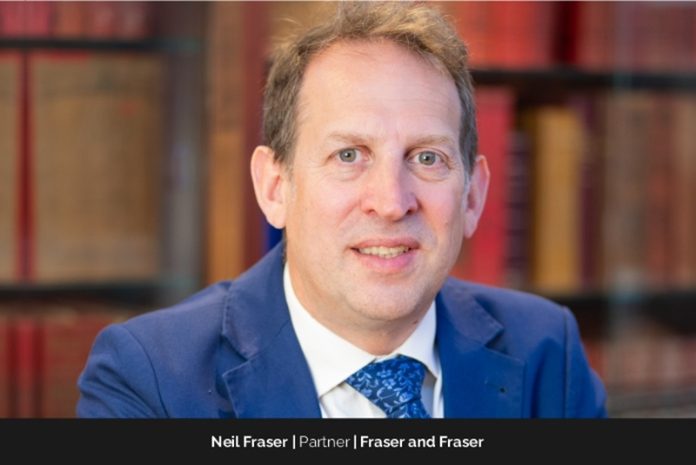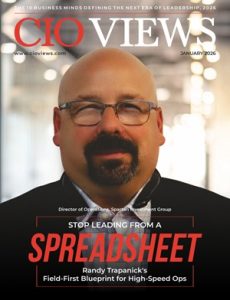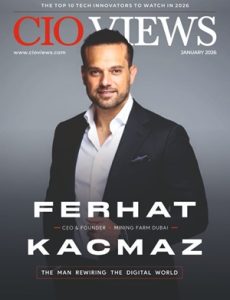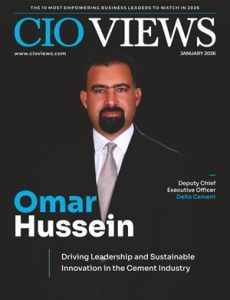“It was always in my blood,” says Neil Fraser, reflecting on a legacy that stretches back over a century. The business was, first founded by his great-aunt in 1923, then a new partnership by his father and uncle in 1969, after she passed-away, it was never just a business; it was the family story. By the time Neil officially joined the firm in 1998, the decision felt less like a career move and more like a natural progression.
With a background in human geography, Neil brought a rigorous approach to research and critical evaluation. These skills proved invaluable in the field of probate research. But he clarifies that what they do is legal genealogy, not family history. The distinction matters. “You can’t rely on assumptions or name similarities,” Neil explains, “You must be certain of your sources and the evidence you present in order to find the correct family.”
What keeps him motivated is the blend of intellectual complexity and human impact: connecting the dots on long-lost family lines and helping heirs claim what’s legally theirs. That deep sense of purpose and commitment to integrity was recently recognized when the firm was named Financial and Professional Services Family Business of the Year 2025. “As a family-run business, this award reflects our dedication to clients, our core values, and the role family firms play in society,” Neil says. “We’re proud and grateful to be part of that tradition.”
When Neil joined Fraser and Fraser, the firm was operating in a different era. There were no personal email accounts; research was conducted using paper records and microfilm, and digitization was still a distant concept. The industry itself was unregulated, informal, and opaque, built more on instinct than evidence.
That turning point came just before Neil became a partner. The firm was invited to feature in a television program to film their day-to-day work. It was a bold, public step that demanded higher internal standards and greater transparency. Going public didn’t just open the doors to viewers; it restructured the way they operated. He led initiatives to align with legal and regulatory frameworks and introduced best practices from the wider professional services sector.
Compliance, staff development, and digital transformation became priorities, including the full implementation of European data protection protocols to manage data rigorously. Today, Neil views the firm as a sector leader where heritage and trust intersect with the agility of modern legal delivery.
Raising the Bar in a Once-Unregulated World
“Recognition is always appreciated,” Neil remarks, “especially when it reflects the dedication and hard work that happens behind the scenes.” For him, it has never been just about conducting research or running a successful business; it’s about delivering a vital public service.
The firm’s biggest public nods came through the BBC One program Heir Hunters, which aired probate research into millions of homes. The show reached over two million UK viewers daily and ran for more than 250 episodes over 12 years. While others in the industry baulked at the exposure, Fraser and Fraser took the risk and succeeded. What was once seen as niche and murky suddenly had a face and a purpose. In 2024, Fraser and Fraser returned to the screen as part of ProbateTV’s newest series, Lineage, available to watch on YouTube. This documentary-style show follows genealogists on high-stakes searches for missing heirs, where family secrets are uncovered, fortunes hang in the balance, and long-lost relatives are reunited with their rightful inheritance. Fraser and Fraser featured in six episodes of Series1 and are now appearing in the ongoing second series.
But visibility alone wasn’t enough. Recognising a void, Neil founded the Association of Probate Researchers (APR), with membership of some of the UK’s biggest Probate research firms injecting much-needed structure and credibility into a previously overlooked field. This move solidified the official standing and allowed case managers to register on the Professional Paralegal Register, 100% independent regulation from the probate research industry. It was a climactic step that silenced many who questioned their “true paralegal” status.
The ultimate validation arrived when Fraser and Fraser clinched Paralegal Business of the Year at the 2019 UK National Paralegal Awards, a win they’ve since repeated alongside multiple Probate Research Firm of the Year accolades at the British Wills & Probate Awards, amongst a host of other awards.
When Neil was named UK Paralegal of the Year in 2021, it struck a personal chord, cementing his stature as a significant leader. He believes quality deserves scrutiny, and regulation isn’t the enemy. It’s what raises the game for everyone.
Instinct, Integrity, and a Bit of Luck: Most Memorable Cases
For Neil, the most complex estates aren’t always the largest. While he has handled cases involving over 350 heirs across multiple continents, it’s the deceptively simple ones that often leave the most profound mark. He vividly recalls his first experience as a case manager, where a solicitor sought research on just one side of a seemingly simple family case. Neil, with little initial enthusiasm from the case managers at the time it became the first case he was named manager, the team traced and signed up about a dozen heirs, even though he’d recommended that Missing Beneficiary Insurance should be considered the solicitor declined. Yet, just before distribution, the supposed sole heir on the unresearched side of the family casually mentioned a sister, a claim directly contradicting her previous statements. That offhand remark prompted the solicitor to reopen the file and instruct Neil to finish the case, ultimately uncovering nearly 100 additional heirs. The woman initially poised to inherit half the estate ended up with less than a thousandth. The solicitor became an exclusive client. The experience taught Neil an enduring lesson: “Never take anyone’s word at face value when money is involved.”
Then there was the reluctant lead, a “Smith” birth search through cumbersome, bound registers, hours of manual searching no one wanted. Neil a researcher at the time volunteered and, by sheer luck, after skipping the first few years only to land on a seemingly correct entry on the very first page. A quick search led to a phone number in the Channel Islands a long way from the birth. Even though such calls would typically fall to the case manager, who insisted there was no way the address was correct. Stepping outside his usual remit, he made the call himself and reached the sole heir to a half-million-pound estate, no one else had ever contacted the heir. From this case, the real takeaway was, “Rigour and persistence are vital in this job—but sometimes, luck has its role too.” He concedes that the key is being ready to act when that rare stroke of fortune appears.
The Precision Protocol
Accuracy is meticulously engineered into Fraser and Fraser’s core methodology. That’s precisely why no single individual ever handles an estate from start to finish. At this firm, dedicated researchers focus solely on genealogical tracing, rarely, if ever, directly interacting with heirs. Conversely, case managers all who have previously been researchers concentrate entirely on case management and heir communication. This clear division of roles ensures every aspect of the work is independently cross-checked and reviewed, building in a critical layer of quality control.
The team’s methodology is built on a foundation of official documentation and certificates. Researchers have the freedom to order any necessary records, with no cost restrictions tied to individual cases. Every heir is required to complete a detailed family questionnaire, and the information provided undergoes thorough scrutiny. Case managers aren’t paid commission instead all staff share an annual bonus coming from the same pot. When dealing with sensitive family matters, Neil stresses that while listening is important, in his experience, being clear and upfront is what truly earns trust and consistently yields the most accurate results.
Amplifying Expertise: The Digital Edge
Neil recalls the 1990s, when search errors could result in hours of wasted effort. Now, with intelligent databases and online archives, his team can focus less on mechanics and more on meaningful discovery. Yet, Neil is quick to point out that technology doesn’t replace human expertise. It sharpens it. AI can distil millions of records into a few hundred, but the work of interpreting results, spotting subtle errors, and grasping nuanced contexts still calls for human judgment. He feels the real value of digitization lies in freeing researchers from the mundane mechanics of searching, so they can focus on deeper analysis and meaningful insight
The Delicate Balance of Disclosure
For Neil, this work is a constant, intricate balancing act. “Legally, everything must be watertight,” he explains, “the legal heirs are the legal heirs, even if the deceased would have objected to certain individuals inheriting their estate due to past conflicts or estrangement.”
Yet, emotionally and ethically, cases often unfold during incredibly vulnerable moments for families. Some heirs receive news of an inheritance from someone they barely knew, and yet it stirs powerful responses—sadness, regret, or guilt for a relationship that never healed. In other instances, a long-standing family rift exists, and the hopeful sentiment of ‘one day we’ll resolve it’ is tragically overtaken by the finality of death. In such moments, Fraser and Fraser’s role is deeply human. The team offers not just structure and stability, but also the emotional intelligence to handle each case with dignity. This balance between legal certainty and human compassion is where the firm’s integrity truly resides.
Leadership Principles of Peak Performance
From the moment he became a partner, Neil’s approach to effective leadership has been guided by a set of core principles. He’s a firm believer in the idea of the right person for the right job. It means researchers conduct research, case managers manage cases, and administrative staff handle correspondence.
Beyond internal structure, Neil prioritizes absolute transparency and integrity. As a public-facing firm, he insists that they must constantly demonstrate lawful and honest practices. This commitment extends to fair remuneration, which is non-negotiable for him; even those gaining experience deserve to be adequately compensated.
Next is non-discrimination. When Neil joined, the firm was largely male-dominated due to the physical nature of “pulling large books” to conduct research and only staff who had research experience could become case managers. He made it his mission to promote equality and merit-based progression. This ensures that recruitment and advancement are based solely on ability, regardless of gender, religion, or other factors. In his words, “The strength of Fraser and Fraser is rooted in the depth, diversity, and collective expertise of our team.”
Cultivating Elite Expertise
For Neil, continuous development is the foundation of Fraser and Fraser’s leadership in the field. With few external probate research programs available, the firm has built a rigorous in-house training model, reinforced by targeted external courses and structured mentoring.
He actively encourages formal accreditation, particularly through the CILEX pathway. “Over the past 12 months, every case manager at Fraser and Fraser has attained either CILEX Paralegal or Chartered Paralegal status,” he notes—a first in the industry. Of the initial 40 Chartered Paralegals, he proudly adds, a third came from his firm.
Ongoing development remains a core priority, supported by consistent feedback from seasoned colleagues. The notable staff longevity, Neil points out, is a direct reflection of this thoughtful investment. Beyond performance, the goal is to help individuals truly thrive. By building confidence, capability, and legal expertise from within, Fraser and Fraser aims to raise not only its own standards, but those of the entire profession.
The Gathering Storm: Probate in a Globalized Era
This vigilant entrepreneur identifies surging global mobility as a critical accelerant, predicting a dramatic rise in cross-jurisdictional complexity as individuals increasingly live, work, and hold assets across international borders. The consequences are already evident: contested wills, sophisticated fraud allegations, and bitter disputes over entitlement are rapidly becoming the norm, not the exception.
But it’s the insidious rise of probate fraud that elicits Neil’s most urgent concern. He warns that criminal organizations are actively “industrializing” exploitation, a threat, he argues, that current regulatory oversight is ill-equipped to counter, leaving the system perilously exposed. The chilling reality, he emphasizes, is that victims often never even realize they’ve been defrauded—a stark proof of the serious and immediate need for both strong reform and strict vigilance.
The Masterclass in Legal Prowess
For aspiring legal professionals, Neil’s advice is clear: “Start by mastering the fundamentals—legal terminology, research techniques, organization, and attention to detail. These core skills are the foundation of success.” Analytical thinking, nuanced communication, and skilled client interaction come later.
He also urges newcomers to find their true legal niche. The field is vast, and specialization is required not only as a career move but also to fuel motivation and powerfully differentiate individuals.
Beyond technical prowess, Neil emphasizes the significant importance of emotional intelligence, understanding what people genuinely need and how to guide them through often complex and labyrinthine legal processes.
The trailblazer reminds aspirants that thorough research is the hidden lever that can turn a case on its head. He also sees tech fluency as today’s greatest equalizer, giving fresh talent a real shot at outpacing even the most seasoned legal minds. Finally, Neil backs alternative pathways into the profession, especially CILEX, which are democratizing the UK legal environment, opening doors that might otherwise remain closed.
Future-Proofing a Once-Niche Field
Looking ahead, Neil underscores Fraser and Fraser’s long-term commitment to ethical leadership. One of the firm’s progressive steps is its adoption of the ICO-approved UK GDPR Code of Conduct for Investigative and Litigation Support Services. Then comes CILEX accreditation, another industry first that reflects the firm’s drive to professionalize and elevate the role of paralegals across the sector.
But Neil’s vision goes beyond compliance and voluntary regulation. It’s a clear signal that the firm is prepared to lead with integrity in a space that has historically lacked clarity. Future-proofing the firm means embedding discipline into the everyday: solid quality controls, continuous learning, and a culture of accountability that permeates every case. It also means looking beyond the legal sphere, drawing on cross-industry best practices to sharpen its ethical and operational edge, while supporting staff through formal qualifications and structured development opportunities.
As fraud becomes more sophisticated and international complexity increases, Neil remarks, “Our goal is to help drive the reforms needed to secure this space and protect families and estates from abuse.”
He believes that tomorrow’s legal leaders will be those who combine sharp analytical minds with empathy, cultural fluency, and a sense of civic responsibility. That means building teams that reflect the society they serve, through mentoring, inclusive hiring, and alternative routes like CILEX that expand the pipeline of future talent. In his view, Fraser & Fraser’s role is to connect families with their rightful inheritance and promote honesty throughout the legal process.





